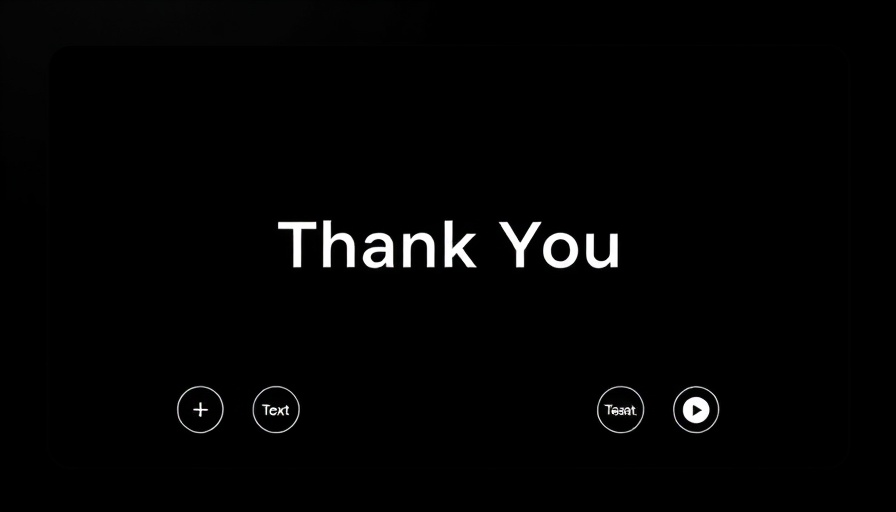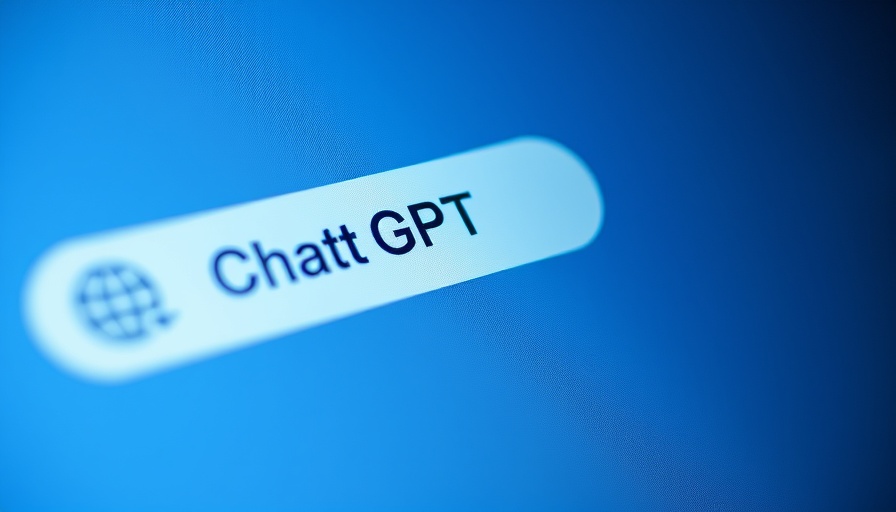
Is Politeness in AI Conversations Truly Costing Us?
In the digital age, everything seems to be driven by efficiency—especially for busy entrepreneurs and professionals. With AI chatbots like ChatGPT rapidly becoming integrated into everyday tasks, one might want to ask: does using "please" and "thank you" really add to the costs of these services? Recent discussions have illuminated this surprisingly nuanced topic.
The Surprising Cost of Courtesy
OpenAI CEO Sam Altman recently revealed that politeness in chatbot communications may cost the company tens of millions of dollars annually due to increased energy consumption. Each interaction with ChatGPT is energy-intensive; according to research by Goldman Sachs, a single ChatGPT query uses about 2.9 watt-hours. That's roughly ten times the energy expenditure of a regular Google search. Given that OpenAI receives over one billion requests daily, it's easy to see how even slight increases in word count can drastically escalate energy use.
Politeness: A Double-Edged Sword
Yet, before we dismiss good manners, consider the flip side. Research indicates that employing polite language can lead to better and more accurate chatbot responses. Indeed, tests conducted by TechRadar demonstrated that harsh or blunt prompts tend to produce error-ridden or biased replies. On the other hand, those who used polite prompts generally received more detailed and helpful responses.
Current Trends: A Shift in AI Ethics
This paradox raises important ethical considerations within the AI landscape. Navigating the balance between cost-efficiency and adequate performance poses a significant challenge for developers and users alike. With the latest AI trends in 2025 pointing toward a push for more responsible energy consumption, figuring out energy-efficient ways to maintain chatbot efficacy may become a focal point in AI development. The undeniable social norms around politeness now collide with pressing concerns about sustainability.
Can You Be Polite Without the Costs?
For those of us in the entrepreneurial sphere, the question becomes whether we should abandon courtesy to save on energy costs. However, consider simply reducing your word count to essential phrases without sacrificing civility. "Please" and "thank you" might seem excessive, but they create a more collaborative environment in AI interactions, which could ultimately lead to better work outcomes.
Conclusion: Finding Balance in AI Interactions
We may find ourselves at a crossroads where the niceties of human communication could come at a price. The debate continues as we weigh the importance of being polite against the backdrop of environmental responsibility. Will we prioritize politeness for better responses, even if it comes at a higher energy cost? As artificial intelligence continues to embed itself in our daily lives, revisiting our approach might not only improve our efficiency but also refine our interactions.
To stay updated on the latest AI trends and tools that can enhance your business without draining resources, check out our weekly AI roundup. Balance your politeness and efficiency in this fast-paced digital landscape.
 Add Row
Add Row  Add
Add 




 Add Row
Add Row  Add
Add 

Write A Comment